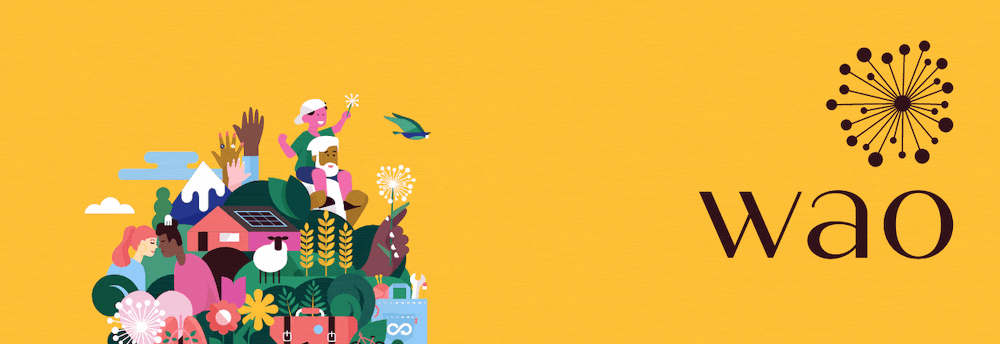Wao Blog: Redefining Capitalism
Wao
14 October 2021, 7:03 PM
 What is the purpose of our economy? How best can we use wealth to create a thriving ecosystem for humans and all other species?
What is the purpose of our economy? How best can we use wealth to create a thriving ecosystem for humans and all other species? The Oxford Dictionary defines Capitalism as “An economic and political system in which a country's trade and industry are controlled by private owners for profit, rather than by the state.”
The pillars of capitalism are free markets, encouraging the accumulation of private wealth and using growth as the yardstick for success.
This system could have worked if we lived in a world with infinite resources and we had a counter balance in the system to iron out inequalities. But that’s not the world we live in.
New Zealand is currently using nature 2.7 times faster than our planet’s biocapacity can regenerate. As the latest IPCC AR6 Report outlines, our global response to tackling greenhouse gas emissions has so far failed.
Wealth is concentrated in the few with the wealthiest 1% of households owning 20% and the poorest 50% owning just 1.7% of the cumulative wealth of our country.
The failure of the system to tackle these big problems is prompting many to question the system. What is the purpose of our economy? How best can we use wealth to create a thriving ecosystem for humans and all other species?

We live in a natural system, with finite resources and any economic system has to operate within these boundaries.
A number of movements have arisen to see how this can be done including regenerative capitalism, doughnut economics,the advent of the circular economy and the rise of the impact investment movement.
Increasingly, private capital, from philanthropic to investment and debt capital, is dependent not only on economic benefits, but also increasingly stringent environmental and social outcomes.
Earlier this year, Aotearoa New Zealand became the first country in the world to introduce a law that requires the financial sector to disclose the impacts of climate change on their business and explain how they will manage climate-related risks and opportunities. How we use public money is also changing.
The government's Wellbeing approach to our national budget is based on the four capitals: human, natural, social, and financial and physical capital, and 12 domains of wellbeing, such as housing and social connections.
The Oxford dictionary began as a means, not only to trace the historical development of the English language but also define the principles and ideas that underpin our society. Words count for more than letters on a page.
It’s probably time that we wrote to the editor to relook at the definition of the world's capital and capitalism to encompass its purpose as a means to help nourish a thriving planet and people.
Want to find out more?
- Get tickets to Capitalism Redefined and the Know Your Money Workshop at the Wao Summit in October 2021.
- For ethical investment, head to Mindful Money to check out what you’re investing in.
The Wao Summit is a six day annual event held in Wānaka. Its aim is to inspire, educate and enable our transition as a community and nation to a healthy, thriving, diverse, carbon zero community.
Tickets on sale now at www.wao.co.nz/summit2021
